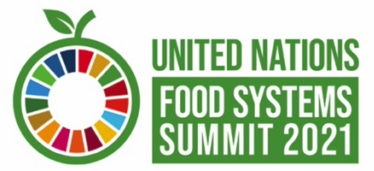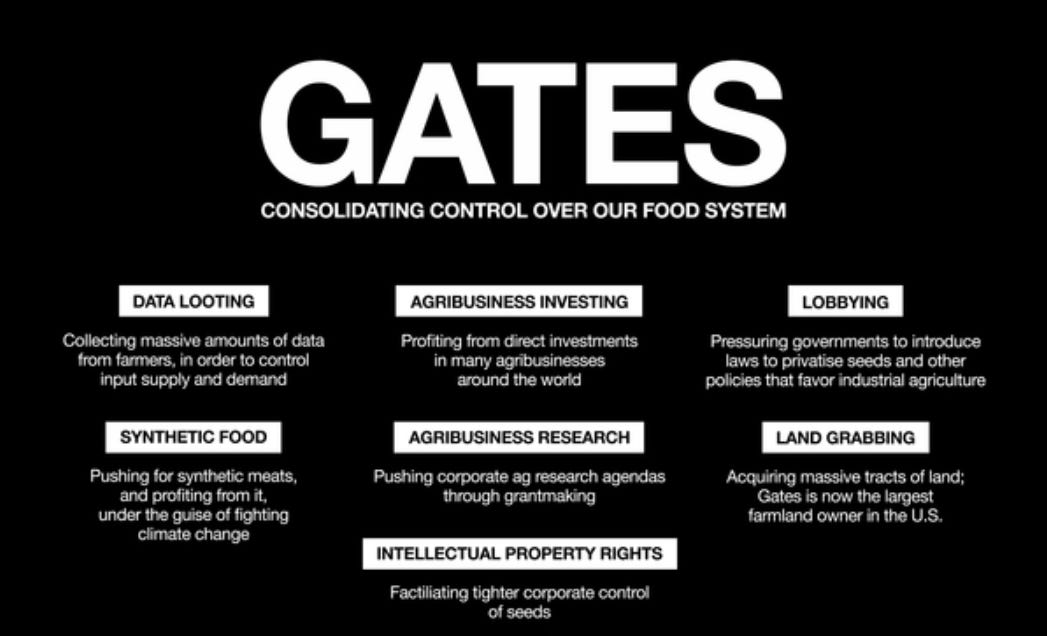The RēMind, No. 006: What Does the Global Food System Really Need?
Updates from Rē / The UN Food Systems Summit / Critiques of the UN Food Systems Summit / Influence of the Gates Foundation / Farmer's Footprint Film
What does the global food system really need?
Who directs the future of our globalized food system?
How do we transition to an abundant, just & regenerative food system that recognizes diverse voices and perspectives, not just large global corporations?
This newsletter explores the voices that are speaking up about the most significant faults of the system, exploring where we can democratize the discussion and most rapidly and effectively make improvements at the local level that shift us toward a regenerative model of food production.
— Ruth Sevigny, Editor
Updates from Rē:
Our Within Wellness team is hard at work designing a variety of online and in-person events to help you find balance, wellbeing and abundance in these challenging times.
New this month in our online library of downloadable material is our ‘Fuel for Life’ and ‘Mindful Movement’ courses:
We will be adding new material to the online library each month. Here’s a teaser of what’s coming down the pike!
Looking to reconnect with community and nature? Stay tuned for more details for our ‘Falling Into Balance’ self-care retreat slated for October 22-24th at Rē’s home-base in Tennessee.
The UN Food Systems Summit
-photo: summitdialogues.org
The UN Food Systems Summit presents itself as a key player of the 2030 Sustainable Development Goals (SDGs) to create healthier, more sustainable and equitable food systems. With their pre-summit event quickly coming up from July 26 - 28 in Rome, the group has held hundreds of dialogues for people from around the world to bring their stories and experience to the table.
Critiques of the UN Food Systems Summit
However, there are critical perspectives that hone in on where things must improve with the UN Summit, particularly the lack of grassroots stakeholders in decision-making and agenda-shaping roles. What follows are three articles discussing many important aspects of the Summer that require further attention:
Article by A Growing Culture:
We Should All Be Worried About The United Nations Food Systems Summit
“At the heart of the opposition is the fact that the conference has been co-opted by corporate interests who are pushing towards a highly industrialized style of agriculture promoted by supporters of the Green Revolution, an approach that is meant to eradicate hunger by increasing production through hybrid seeds and other agrochemical inputs. It has been widely discredited for failing to achieve its goals and damaging the environment. The Summit’s concept paper perpetuates the same Green Revolution narrative — it is dominated by topics like AI-controlled farming systems, gene editing, and other high-tech solutions geared towards large-scale agriculture, as well as finance and market mechanisms to address food insecurity, with methods like agroecology notably absent or minimally discussed.”
Article by Slow Food:
UN Food Systems Summit: We cannot jump onto a train that is heading in the wrong direction
“The UN Food Systems Summit (UN FSS) will be held in September 2021 and aims to launch bold actions to deliver progress on all 17 Sustainable Development Goals, each of which relies to some degree on healthier, more sustainable and equitable food systems. However, Slow Food, together with the Civil Society Mechanism (CSM) and many other organizations of civil society, has decided to decline any formal involvement in the Summit process because of a series of concerns around undue corporate influence, a missing human rights grounding and a lack of transparency in the process.”
Article by Frontiers In Sustainable Food Systems:
UN Food Systems Summit 2021: Dismantling Democracy and Resetting Corporate Control of Food Systems
“Although few people will dispute that global food systems need transformation, it has become clear that the Summit is instead an effort by a powerful alliance of multinational corporations, philanthropies, and export-oriented countries to subvert multilateral institutions of food governance and capture the global narrative of “food systems transformation.” This article places the upcoming Summit in the context of previous world food summits and analyzes concerns that have been voiced by many within civil society. It elaborates how the current structure and forms of participant recruitment and public engagement lack basic transparency and accountability, fail to address significant conflicts of interest, and ignore human rights.”
Is the Gates Foundation driving the global food system in the wrong direction?
In order to build the new regenerative paradigm, we must understand the malfunctions of the current food system. This article by GRAIN explains the history of a highly influential foundation that has played a key role in getting us to where we are now within the global food system:
“GRAIN is a small international non-profit organisation that works to support small farmers and social movements in their struggles for community-controlled and biodiversity-based food systems.”
-photo: grain.org
“The Bill and Melinda Gates Foundation has spent nearly US$6 billion over the past 17 years trying to improve agriculture, mainly in Africa. This is a lot of money for an underfunded sector, and, as such, carries great weight. To better understand how the Gates Foundation is shaping the global agriculture agenda, GRAIN analysed all the food and agriculture grants the foundation has made up until 2020. We found that, while the Foundation's grants focus on African farmers, the vast majority of its funding goes to groups in North America and Europe. The grants are also heavily skewed to technologies developed by research centres and corporations in the North for poor farmers in the South, completely ignoring the knowledge, technologies and biodiversity that these farmers already possess. Also, despite the Foundation's focus on techno-fixes, much of its grants are given to groups that lobby on behalf of industrial farming and undermine alternatives. This is bad for African farmers and bad for the planet. It is time to pull the plug on the Gates' outsized influence over global agriculture.”
Farmer’s Footprint Film
However, we also want to share where the food system is actively changing for the better!
The Farmer’s Footprint is an exciting short film following the shift from the challenges and harms of conventional agriculture into the brilliant solutions found within regenerative agriculture practices. Find out more about the game-changing work, told from the perspective of farmers themselves, here.








